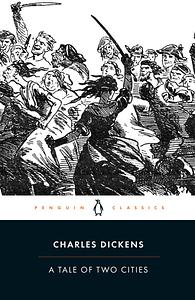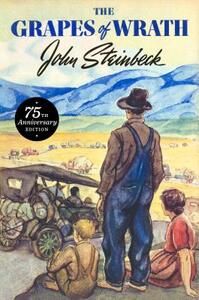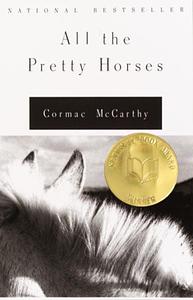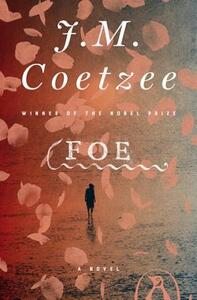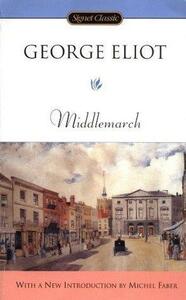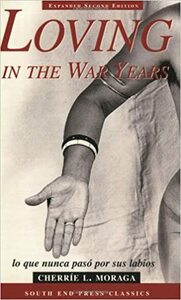Take a photo of a barcode or cover
sugar_popppp's Reviews (171)
You can tell if a writer is good or bad just by reading a few pages. But with Dickens, you don’t even need that much—just a few paragraphs are enough to see his brilliance. The first paragraph of A Tale of Two Cities is amazing, seriously! And in the first chapter, the way he describes the year 1775 is so vivid yet so simple.
My favorite chapter is Chapter 14 of Book Three. The way Dickens wrote about a female character—especially considering it was the Victorian era—is just incredible. It’s so well done and deserves a lot of appreciation.
It does not happen often where you annotate the first line of the book as well as last one.
As Francis Bacon once said, “Some books are to be tasted, others to be swallowed, and some few to be chewed and digested.” Dickens' work isn’t just to be chewed and digested—it’s meant to be devoured.
My favorite chapter is Chapter 14 of Book Three. The way Dickens wrote about a female character—especially considering it was the Victorian era—is just incredible. It’s so well done and deserves a lot of appreciation.
It does not happen often where you annotate the first line of the book as well as last one.
As Francis Bacon once said, “Some books are to be tasted, others to be swallowed, and some few to be chewed and digested.” Dickens' work isn’t just to be chewed and digested—it’s meant to be devoured.
Beautifully writting.
1. What he loved in horses was what he loved in men, the blood and the heat of the blood that ran them.
2.“It was always himself that the coward abandoned first. After this all other betrayals came easily.”
3. I don't believe knowing can save us. What is constant in history is greed and foolishness and a love of blood and this is a thing that even God–who knows all that can be known–seems powerless to change.”
4. ‘Between the wish and the thing the world lies waiting.’
1. What he loved in horses was what he loved in men, the blood and the heat of the blood that ran them.
2.“It was always himself that the coward abandoned first. After this all other betrayals came easily.”
3. I don't believe knowing can save us. What is constant in history is greed and foolishness and a love of blood and this is a thing that even God–who knows all that can be known–seems powerless to change.”
4. ‘Between the wish and the thing the world lies waiting.’
It's a modern retelling of ROBINSON CRUSOE, writing is great, simple and easy, I mean even if you haven't read the DEFOES work you can read it, it's not some sort of great literature but it's a very thoughtful work, where you can understand friday more, and also can see whole story from another person's Perspective.
Some favourite lines :-
1. "When I was on the island I longed only to be elsewhere, or, in the word I then used, to be saved. But now a longing stirs in me I never thought I would feel."
2. "For though my story gives the truth, it does not give the substance of the truth"
3. "There were spider-webs over the windows already, which we have swept away. We will disturb nothing. When you return we will vanish like ghosts, without complaint. 'I have your table to sit at, your window to gaze through. I write with your pen on your paper, and
when the sheets are completed they go into your chest. So your life continues to be lived, though you are gone.
'All I lack is light. There is not a candle left in the house. But perhaps that is a blessing. Since we must keep the curtains drawn, we will grow used to living in gloom by day, in darkness by night.
'It is not wholly as I imagined it would be. What I thought would be your writing-table is not a table but a bureau. The window overlooks not woods and pastures but your garden. There is no ripple in the glass. The chest is not a true chest but a dispatch box.
Nevertheless, it is all close enough. Does it surprise you as much as it does me, this correspondence between things as they are and the pictures we have of them in our minds?"
4. "All the nooks and crannies, all the odd hidden corners of the garden, have an air of familiarity, as if in a forgotten childhood I here played games of hide and seek."
5. "'How much of my life consists in waiting!"
6. " But what we can accept in life we cannot accept in history."
7. "The world is more various than we ever give it credit for - that is one of the lessons I was taught by Bahia. Why should such tribes not exist, and procreate, and flourish, and be content?"
8. 'If Friday had been anyone else, I would have wished him to take me in his arms and comfon me, for seldom had I felt so misetable. But Friday stood like a statue. I have no doubt that amongst Africans the human sympathies move as readily as amongst us. But the unnatural years Friday had spent with Cruso had deadened his bean, making him cold,
incurious, like an animal wrapt entirely in itself."
9. "Many strengths you have, but invention is not one of them."
10. "Do you think women drop children and forget them as snakes lay eggs? Only a man could entertain such a fancy."
11. "She is more your daughter than she ever was mine."
12. "Why did I not catch you stealing glances from behind a rock while I bathed? Do tall women who rise up out of the sea dismay you? Do they seem like exiled queens come to reclaim the islands men have stolen from them?"
13. "for what have you ever stolen in your life, you who are yourself stolen?"
14. " Sometimes I believe it is I who have become the slave. No doubt you would smile, if you could understand."
15. "The pain you feel is the pain of lack, not the pain of loss. What you hope to regain in my person you have in truth never had."
16. 'If Friday is not mine to set free, whose is he? No man can be the slave of a dead hand."
17. "'Yesterday the worst came to pass. We were stopped on the Windsor road by two drunken soldiers who made their intention on my person all too plain. I broke away and took to the fields and escaped, with Friday at my heels, in mortal terror all the while we ran that they would shoot upon us. Now I pin my hair up under my hat and wear a coat at all times, hoping to pass for a man. "
18. "I do not love him, but he is mine."
19. "They have a saying: In her life a woman has but three occasions to leave the house for her baptism, her wedding, and her burial. A woman who goes abroad freely is thought a whore. I was thought a whore. But there are so many whores there, or, as I prefer to call them, free women, that I was not daunted"
20. "if the girl were her father's child then her father must be my opposite, and we do not marry our opposites, we marry men who are like us in subtle ways."
Some favourite lines :-
1. "When I was on the island I longed only to be elsewhere, or, in the word I then used, to be saved. But now a longing stirs in me I never thought I would feel."
2. "For though my story gives the truth, it does not give the substance of the truth"
3. "There were spider-webs over the windows already, which we have swept away. We will disturb nothing. When you return we will vanish like ghosts, without complaint. 'I have your table to sit at, your window to gaze through. I write with your pen on your paper, and
when the sheets are completed they go into your chest. So your life continues to be lived, though you are gone.
'All I lack is light. There is not a candle left in the house. But perhaps that is a blessing. Since we must keep the curtains drawn, we will grow used to living in gloom by day, in darkness by night.
'It is not wholly as I imagined it would be. What I thought would be your writing-table is not a table but a bureau. The window overlooks not woods and pastures but your garden. There is no ripple in the glass. The chest is not a true chest but a dispatch box.
Nevertheless, it is all close enough. Does it surprise you as much as it does me, this correspondence between things as they are and the pictures we have of them in our minds?"
4. "All the nooks and crannies, all the odd hidden corners of the garden, have an air of familiarity, as if in a forgotten childhood I here played games of hide and seek."
5. "'How much of my life consists in waiting!"
6. " But what we can accept in life we cannot accept in history."
7. "The world is more various than we ever give it credit for - that is one of the lessons I was taught by Bahia. Why should such tribes not exist, and procreate, and flourish, and be content?"
8. 'If Friday had been anyone else, I would have wished him to take me in his arms and comfon me, for seldom had I felt so misetable. But Friday stood like a statue. I have no doubt that amongst Africans the human sympathies move as readily as amongst us. But the unnatural years Friday had spent with Cruso had deadened his bean, making him cold,
incurious, like an animal wrapt entirely in itself."
9. "Many strengths you have, but invention is not one of them."
10. "Do you think women drop children and forget them as snakes lay eggs? Only a man could entertain such a fancy."
11. "She is more your daughter than she ever was mine."
12. "Why did I not catch you stealing glances from behind a rock while I bathed? Do tall women who rise up out of the sea dismay you? Do they seem like exiled queens come to reclaim the islands men have stolen from them?"
13. "for what have you ever stolen in your life, you who are yourself stolen?"
14. " Sometimes I believe it is I who have become the slave. No doubt you would smile, if you could understand."
15. "The pain you feel is the pain of lack, not the pain of loss. What you hope to regain in my person you have in truth never had."
16. 'If Friday is not mine to set free, whose is he? No man can be the slave of a dead hand."
17. "'Yesterday the worst came to pass. We were stopped on the Windsor road by two drunken soldiers who made their intention on my person all too plain. I broke away and took to the fields and escaped, with Friday at my heels, in mortal terror all the while we ran that they would shoot upon us. Now I pin my hair up under my hat and wear a coat at all times, hoping to pass for a man. "
18. "I do not love him, but he is mine."
19. "They have a saying: In her life a woman has but three occasions to leave the house for her baptism, her wedding, and her burial. A woman who goes abroad freely is thought a whore. I was thought a whore. But there are so many whores there, or, as I prefer to call them, free women, that I was not daunted"
20. "if the girl were her father's child then her father must be my opposite, and we do not marry our opposites, we marry men who are like us in subtle ways."
This is something which will teach you new things about life every time you will read this, I think everyone should give it a try atleast once, the major change I've seen in myself after reading this is that I started feeling very much positive after reading this, also I developed positive approach towards life.
It's always the book you least want to read that will surprise you the most.
- Some Favorite lines :-
1. At the age of two and twenty Mary had certainly not attended that perfect good sense and good principal which are usually recommended to the less fortunate girl, as if they were to be obtained in quantities ready mixed, with a satiric bitterness continually renewed and never carried utterly out of sight, except by a strong current of gratitude towards those who, instead of telling her that she ought to be contented, did something to make her so. Advancing womenhood had tempered her plainness, which was a good human sort, such as mothers of our race have."
2. To me it is one of the most odious things in a girls life, that they are must always be some supposition of falling in love coming between her and any man who is kind to her and to whom she is grateful.
3. "I suppose a woman is never in love with anyone she has always known-ever since she can remember; as a man often is. It is always some new fellow who strikes a girl"
4. the clearky person smiled and said, promise was a pretty maid, but being poor she died unwed.
5. "Language gives a fuller image, which is all the better for being vague. After all, the true seeing is within; and painting stares at you with an insistent imperfection. I feel that especially about representation of women. As if a woman were a mere coloured superficies ! You must wait for moment and tone. There is a difference in there very breathing: they change from moment to moment."
6. To be a poet is to have a soul so quick to discern discount that no shade of quality escape it, and so quick to feel, that discernment is but a hand playing with finely-ordered variety on the codes of emotion-a soul in which knowledge passes instantaneously into feeling, and feeling flashes bat as a new organ of knowledge. One may have that condition by fits only.
7. There was no more redress for this than for the discovery of bad temper after marriage- which of course old companions were aware of before the ceremony.
8. Looking at the mother, you might hope that the daughter would become like her, which is a prospective advantage equal to a dowry-the mother too often standing behind the daughter like a malignant prophecy.
9. A man is seldom ashamed of feeling that he cannot love a women so well when he sees a certain greatness in her: nature having intended greatness for men.
10. He distrusted her affection; and what loneliness is more lonely than distrust?
11. She was always trying to be what her husband wished, and never able to respond on his delight in what she was. The thing that she liked, that she spontaneously cared to have, same to be always excluded from her life; for if it was only granted and not shared by her husband it might as well have been denied.
12. Men out live their love, but they don't out live the consequences of their recklessness.
13. Poverty mein bhi as bad as leprosy, if it divides us from what we most care for.
14. I have not given up doing as I like, but I can very seldom do it.
15. The thing one most longs for maybe surrounded with conditions that would be intolerable.
16. Their young delight in speaking to each other and, saying what no one else would care to hear, was forever ended, and become a treasure of the past.
17. To think of the one part of one little women can play in the life of a man, so that to renounce her may be a very good imitation, and to win her may be a discipline!
18. In spite of a general reticence, she needed someone who would recognise her wrongs.
- Some Favorite lines :-
1. At the age of two and twenty Mary had certainly not attended that perfect good sense and good principal which are usually recommended to the less fortunate girl, as if they were to be obtained in quantities ready mixed, with a satiric bitterness continually renewed and never carried utterly out of sight, except by a strong current of gratitude towards those who, instead of telling her that she ought to be contented, did something to make her so. Advancing womenhood had tempered her plainness, which was a good human sort, such as mothers of our race have."
2. To me it is one of the most odious things in a girls life, that they are must always be some supposition of falling in love coming between her and any man who is kind to her and to whom she is grateful.
3. "I suppose a woman is never in love with anyone she has always known-ever since she can remember; as a man often is. It is always some new fellow who strikes a girl"
4. the clearky person smiled and said, promise was a pretty maid, but being poor she died unwed.
5. "Language gives a fuller image, which is all the better for being vague. After all, the true seeing is within; and painting stares at you with an insistent imperfection. I feel that especially about representation of women. As if a woman were a mere coloured superficies ! You must wait for moment and tone. There is a difference in there very breathing: they change from moment to moment."
6. To be a poet is to have a soul so quick to discern discount that no shade of quality escape it, and so quick to feel, that discernment is but a hand playing with finely-ordered variety on the codes of emotion-a soul in which knowledge passes instantaneously into feeling, and feeling flashes bat as a new organ of knowledge. One may have that condition by fits only.
7. There was no more redress for this than for the discovery of bad temper after marriage- which of course old companions were aware of before the ceremony.
8. Looking at the mother, you might hope that the daughter would become like her, which is a prospective advantage equal to a dowry-the mother too often standing behind the daughter like a malignant prophecy.
9. A man is seldom ashamed of feeling that he cannot love a women so well when he sees a certain greatness in her: nature having intended greatness for men.
10. He distrusted her affection; and what loneliness is more lonely than distrust?
11. She was always trying to be what her husband wished, and never able to respond on his delight in what she was. The thing that she liked, that she spontaneously cared to have, same to be always excluded from her life; for if it was only granted and not shared by her husband it might as well have been denied.
12. Men out live their love, but they don't out live the consequences of their recklessness.
13. Poverty mein bhi as bad as leprosy, if it divides us from what we most care for.
14. I have not given up doing as I like, but I can very seldom do it.
15. The thing one most longs for maybe surrounded with conditions that would be intolerable.
16. Their young delight in speaking to each other and, saying what no one else would care to hear, was forever ended, and become a treasure of the past.
17. To think of the one part of one little women can play in the life of a man, so that to renounce her may be a very good imitation, and to win her may be a discipline!
18. In spite of a general reticence, she needed someone who would recognise her wrongs.
In Indian English literature, books like Samskara offer a poignant glimpse into the realities of life in India. It is a thought-provoking read, and I would highly recommend it to anyone looking to understand a deeper, often overlooked side of Indian society, specially for my generation.
But I must say that this book should not be taken as the sole representation of Hinduism, Brahmanism, or Indian society, because a lot of things were dramatized, which we can kind of wave off as creative liberty. I must say this is not the book to understand Indian society for a foreigner, though it might have been relevant for the time it was released.
But I must say that this book should not be taken as the sole representation of Hinduism, Brahmanism, or Indian society, because a lot of things were dramatized, which we can kind of wave off as creative liberty. I must say this is not the book to understand Indian society for a foreigner, though it might have been relevant for the time it was released.
As a Chicana lesbian writer, Moraga examines the struggles of being both a woman of color and queer in a society that marginalizes both identities. She discusses the complexities of love, resistance, and self-discovery in the face of cultural and political oppression, book also explores themes of identity, feminism, sexuality, race, and activism.
The book also critiques racism within feminist movements and sexism within Chicano communities, advocating for intersectional solidarity and radical change. Through deeply personal and political writing, Moraga challenges readers to confront internalized oppression and fight for justice.
Although this book mainly focuses on Mexican (Chicana) women, the thoughts and ideas it shares deeply connect with the experiences of women in the Desi community too. The struggles, feelings, and viewpoints expressed here are part of everyday life for many women around the world, but they are often ignored by mainstream media, which tends to focus movements and activism on a white-centered perspective. We need more political writings like this, not just about sexuality, but on other topics as well, to truly understand the world, not just from a white viewpoint.
Apart from everything else, the best part of the book for me was how it addressed important issues such as:
1. The over-sexualization of Latina women.
2. The impact of Black feminism on women in third-world countries and how it highlighted the crucial challenges that women of color face.
I must say this is a powerful work for understanding both lesbianism and feminism, particularly for women in first-world countries, as well as for men.
The book also critiques racism within feminist movements and sexism within Chicano communities, advocating for intersectional solidarity and radical change. Through deeply personal and political writing, Moraga challenges readers to confront internalized oppression and fight for justice.
Although this book mainly focuses on Mexican (Chicana) women, the thoughts and ideas it shares deeply connect with the experiences of women in the Desi community too. The struggles, feelings, and viewpoints expressed here are part of everyday life for many women around the world, but they are often ignored by mainstream media, which tends to focus movements and activism on a white-centered perspective. We need more political writings like this, not just about sexuality, but on other topics as well, to truly understand the world, not just from a white viewpoint.
Apart from everything else, the best part of the book for me was how it addressed important issues such as:
1. The over-sexualization of Latina women.
2. The impact of Black feminism on women in third-world countries and how it highlighted the crucial challenges that women of color face.
I must say this is a powerful work for understanding both lesbianism and feminism, particularly for women in first-world countries, as well as for men.
